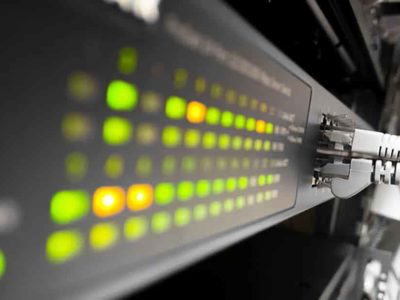Wait for this! The International Trade Administration says Nigeria’s current e-commerce spending hovers around $12 billion and is expected to reach an impressive $75 billion in revenues per annum by 2025.
A 2021 report by Simona Varrella with the title ‘E-commerce in Nigeria – statistics & facts’ published as part of Statista country report further lay credence to Nigeria’s booming Internet economy.
Nigeria’s encouraging internet diffusion has significantly reworked several businesses and created entire new operations that have driven the e-commerce sub-setcor encouraging an army of new investors. As a report by Vanguard notes, almost every household in major Nigerian cities has someone running a successful internet-based business. The ever-increasing volume of e-commerce activities attests to the widespread impact.
RELATED Financial Inclusion Still Has Ways To Go—E-Commerce Can Help
There are now thousands of domestic e-commerce sites from the big league players that include Jumia and Konga to a horde of small-time operators making their own impact.
“Thousands of retail businesses would not exist today if it were not for the internet and ever expanding e-commerce. Increased internet usage has opened up new opportunities for entrepreneurship and employment across the country,” notes Vanguard.
“According to a recent poll, 30-40% of our vendors indicated Jumia was where they started their business. Some sellers came to Jumia to expand their business,” said industry leader and Jumia Nigeria Chairwoman Juliet Anammah.
There is still a lot of uncovered grounds. According to an Accenture analysis on Africa iGDP Forecast, the continent’s internet economy has the potential to contribute $180 billion by 2025, with a projected increase of up to $712 billion by 2050. The fact that companies in the internet sector, in general, have outperformed other sectors of the economy shows a pattern for the same.
According to the recently released telecoms report by the National Bureau of Statistics (NBS), the number of Internet subscribers in Nigeria increased by 14.03 million in the fourth quarter of 2021 to 154.3 million, up from 140.28 million the previous quarter. Lagos, Kano, and Ogun states lead the way with 37.61 million subscriptions as of December 2021.
Industry experts have stressed that the major hurdle to enhancing internet connectivity in the country is building subsea cables, as there has been a shortage of fibre links and transmission. The Ministry of Communication and Digital Economy has affirmed that plans to roll out a 5G network across the country this year remain solid on ground. Two operators won the 5G spectrum bids in a highly competitive auction last December. They are expected to rollout 5G services later this year to help bridge the infrastructure gap further as more cables will be laid with increased opportunities for e-commerce.
Whether as standard e-commerce sites or social media marketplace pages, e-commerce-based businesses are on the rise as major drivers of Nigeria’s steady shift to a digital economy.
The e-commerce sector is increasing productivity, promoting innovation, improving knowledge management, educating customers, expanding the window for choices and providing better shopping experiences.
While Internet access is improving in major states like Lagos and Rivers, it is important to deepen penetration in semi-urban and rural communities in order to widen opportunities in e-commerce. Investment in internet penetration to these communities will bring more Nigerians into the digital business world and move the country towards achieving its 2030 digital economy projections. With 5G in the offing, the opportunities appear limitless for small medium enterprises (SMEs) to further expand Nigeria’s e-commerce window.
Additional Report: Vanguard





























